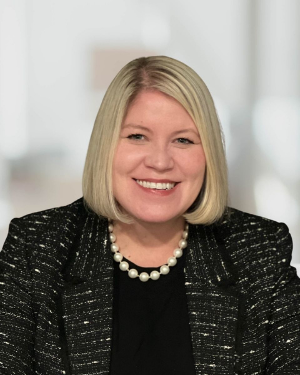
The Chan Zuckerberg Initiative (CZI) announced grants for collaborative teams of researchers and patient organizations to advance our understanding of the fundamental biology underlying rare diseases. These interdisciplinary teams will apply single-cell biology methods to rare inflammatory pediatric diseases in order to clarify the cellular mechanisms of disease.
In partnership with the NEC Society, the two UNC-Chapel Hill researchers leading a $1-million CZI project titled, “Integrating Patients to Accelerate the Science Towards a World Without NEC” seek to better understand the cellular environment of the neonatal gut during inflammatory states, such as NEC. The award is $1 million for the initial two years of funding, followed by an additional $1 million for two more years, pending evaluation.
“Single-cell technologies have incredible potential to accelerate scientific knowledge as researchers work to understand how cells and organs mature and relate to pediatric diseases,” said CZI Science Program Officer for Single-Cell Biology Jonah Cool. “
These studies will leverage the multi-center NEC Biorepository that Dr. Good leads with collaborators Camilia Martin, MD, MS, at the Weill Cornell Medicine; Amy Hair, MD, at the Baylor College of Medicine; and Troy Markel, MD, at the University of Indiana School of Medicine; to build a single cell atlas of the human neonatal intestine across postnatal development and during NEC. This team of clinical scientists will transform the field by obtaining numerous high-quality samples to perform unbiased single-cell RNA sequencing to characterize the transcriptional signatures of each cell type and establish a single-cell atlas for NEC with many diverse donors. These studies will generate a comprehensive transcriptomic view at the cellular level of the stool and intestine and unravel postnatal gastrointestinal development to better understand why fragile infants are uniquely susceptible to NEC.
Co-PI Scott Magness, PhD, Associate Professor in the Departments of Biomedical Engineering and Cell Biology and Physiology, said, “The ability to accurately diagnose NEC is critical. Early biomarkers are lacking currently, but offer hope for identifying and preventing NEC, and support for NEC biomarker research is desperately needed.
Good added, “The current treatment options for NEC, including antibiotics and surgery, do not stop the disease from progressing or harming other organs.” For the infants who survive, complications from NEC affect them for years after their diagnosis in nearly all aspects of their lives.”
Jennifer Canvasser, the Patient Organization PI on this award, founded the NEC Society after her son Micah died from complications of the disease. The NEC Society, a nonprofit organization, is dedicated to building a world without necrotizing enterocolitis by bringing together patient-families, clinicians, and scientists to advance research. Jennifer said, “Our team is thrilled to partner with Drs. Good and Magness to help redefine what is possible for our NICU babies & families!”
“This funding will allow us to build a single-cell atlas of the human neonatal intestine across postnatal development and during NEC,” Good said. “Up to 50% of infants with surgical NEC are at risk of dying. The babies who survive often experience lifelong complications. The ability to accurately diagnose NEC is a critical step towards our ultimate goal of preventing the disease entirely.”
About the Chan Zuckerberg Initiative
The Chan Zuckerberg Initiative was founded in 2015 to help solve some of society’s toughest challenges — from eradicating disease and improving education, to addressing the needs of our local communities. Our mission is to build a more inclusive, just, and healthy future for everyone. For more information, please visit www.chanzuckerberg.com.
